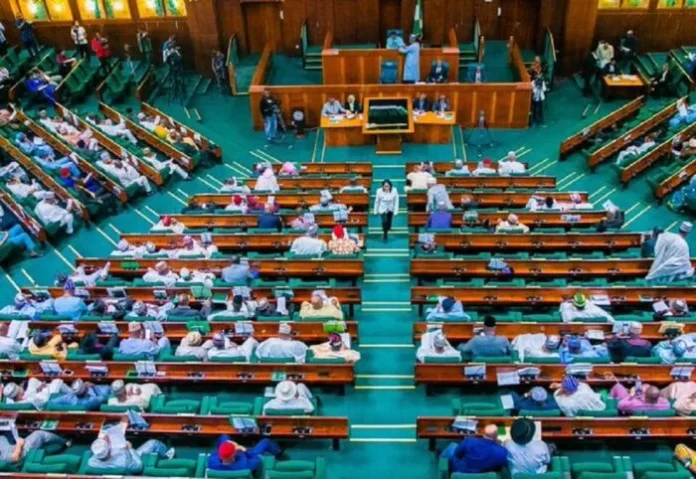AT first glance, the House of Representatives’ decision to cut their salaries by 50 per cent for six months seems sacrificial in view of the general clamour for reduction in cost of governance. Yet, the gesture is merely a small fraction of their overall remuneration, including substantial and undeclared allowances.
Beneath the seeming altruistic gesture, which followed Deputy Speaker Benjamin Kalu’s call on his colleagues to donate half of their N600,000 monthly to support Nigerians, lies a manoeuvre that hardly addresses the underlying issues driving the current nationwide hunger protests.
The lawmakers’ move which was swiftly adopted just before the protests began, pales into insignificance compared to a 2020 revelation that a member of the House of Representatives earns over N10 million monthly, including office expenses, in a nation where the review the N30,000 minimum wage for workers witnessed so much delay.
If the legislators believe that a six-month accumulated charity of roughly N640 million can alleviate the suffering of the masses, they are seriously out of touch with reality as this amount would only purchase 8,000 bags of rice at the current price of N80,000 per bag, to be shared among over 200 million Nigerians or 800, 000 litres of fuel to power millions of generator-sets across the country.
While we acknowledge the lawmakers’ decision as an indication of their awareness of the widespread discontent, their contribution is too insignificant to be so commended. With earnings exceeding N10 million, a mere six per cent or even less is grossly insufficient. We urge them to do much more.
Barely a year ago, these lawmakers were each allocated SUVs valued at approximately N160 million. Additionally, they are reported to receive at least N500 million annually for constituency projects, enabling them to recommend and oversee various initiatives that would improve the well-being of their constituents.
Given these substantial privileges and resources, their current gesture of reducing a fraction of their earnings falls significantly short of addressing the broader issues of governance and accountability.
Undoubtedly, their intention would carry more weight if they pushed for a substantial reduction in the cost of governance, rather than a temporary six-month basic salary cut. If they truly empathize with the struggles of Nigerians, addressing the systemic issues within the governance structure would be far more impactful.
Regrettably, Nigeria is frequently referenced across Africa for its exorbitant cost of governance driven by the huge expenses associated with maintaining a plethora of political offices and managing layers of bureaucracy. Reducing these costs as well as the opulent lifestyles of these public officers would demonstrate solidarity and also bring about considerable relief to the Nigerian populace.
In addition, our legislators should focus on developing infrastructure and enhancing human capacity development in their constituencies. Sadly, Nigerians continue to suffer from a lack of well-equipped health centres, reliable roads, and epileptic power supply, among other challenges, despite huge material resources at its disposal.
Addressing these critical needs should go beyond donating bags of rice as a measure to reduce the economic hardship faced by the citizens. There is need for the Reps to pass a legislation that makes elective offices less financially attractive. Doing so would not only help to curb corruption at high levels and tame greed but also demonstrate their genuine commitment to selflessness and improving governance.
By prioritizing service to Nigerians above personal gains and reducing the financial allure of political office rather than a salary cut, lawmakers would be seen to demonstrate commitment to needed reforms, thereby earning the trust and respect of the people. Engagement in meaningful actions will help them to transform their gestures from a mere window dressing into an appreciable sacrifice strong enough to drive positive change.


